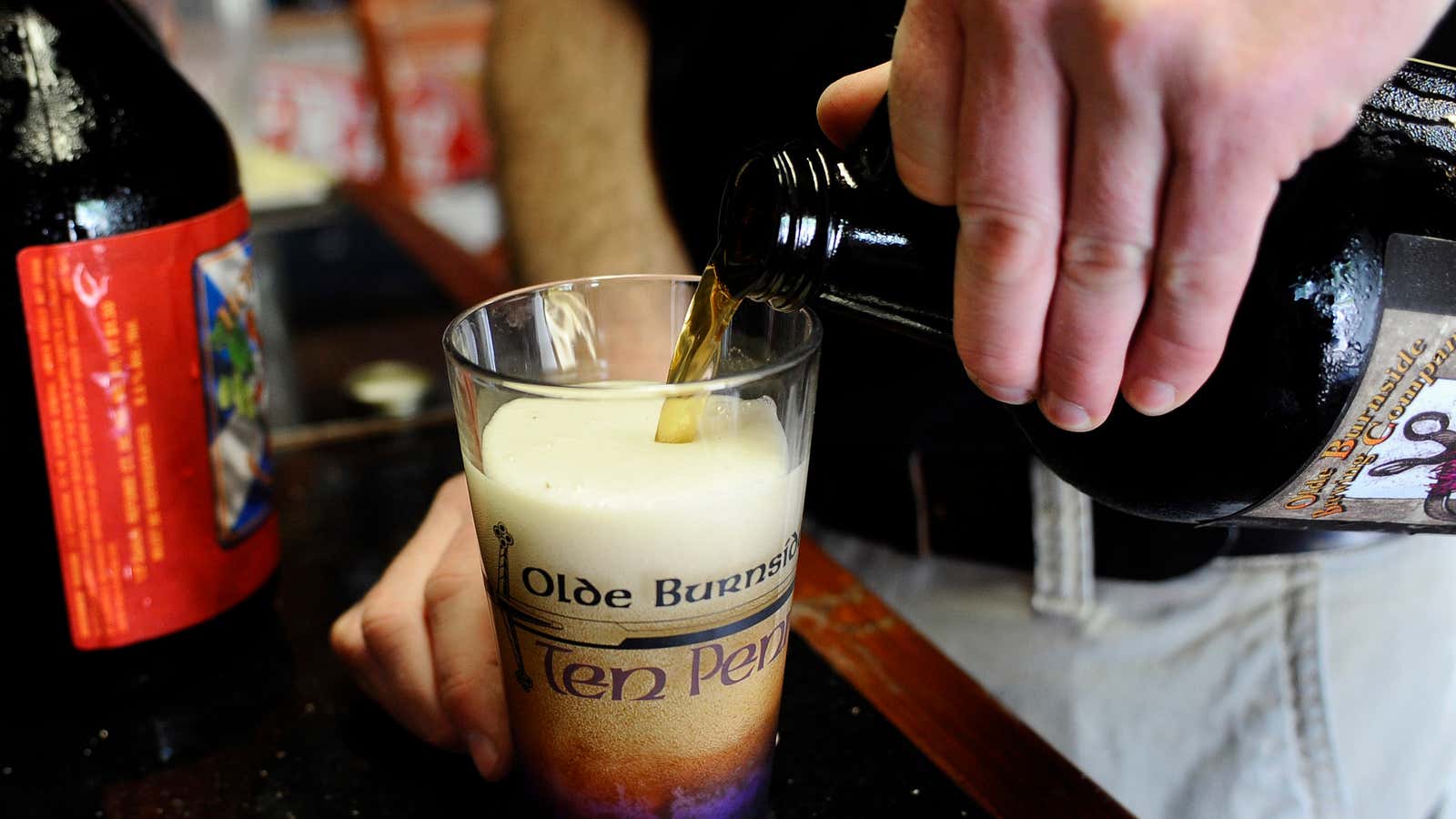It makes sense that disruption in the business world often begins at small enterprises—their small size and innate agility make them more easily open to change. In the beverage industry, some of the biggest innovators are craft breweries, who are making smart, relatable changes that are also sustainable, purposeful and driven by business performance (a combination that has so far enabled them to achieve double-digit market growth and astonishing market penetration).
On average, one new brewery opens its doors every day in the US, today almost every American lives within 10 miles of one. But craft brewers themselves remain small by design, keeping true to their local roots and using agility to their strategic advantage. They are often run by young, social and tech savvy owners who pride themselves on a culture of experimentation. These companies represent the anti-establishment faction, not only of the beer industry but also of big beverage companies in general, pushing the boundaries of innovation and sustainability in ways that their larger counterparts are unable or unwilling to try.
More than just the “cool” factor
Sustainability is a smart business ingredient for brewers, but it’s also the reason why many consumers, and millennials in particular, love them. These young, start-up businesses understand that such practices are economic and environmental imperatives today. They also recognize that the modern brewing process has historically involved major environmental impacts—including high rates of electricity and water usage—which require attention and ingenuity to curb. California’s recent water restrictions are an important reminder of how important this type of forward thinking has become and will continue to be in the future.
Meanwhile, outside influences have been forcing breweries’ hands. According to advocacy nonprofit Ceres, warmer temperatures in the Pacific Northwest, coupled with rising demand, have contributed to a doubling of the price of hops over the past decade, causing financial and sourcing challenges for brewers who depend on that region for a majority of their supplies.
This is where business drivers, innovation and sustainability intersect.
Leading breweries are finding economic opportunity in renewable energy, energy efficiency, water efficiency, waste recapture and sustainable sourcing. For example, Brewery Vivant, Deschutes Brewery and Redhook report that they are now using 100 percent renewable energy to generate electricity. New Belgium Brewing has installed on-site solar arrays at its facilities. Brewery Vivant became the first American LEED-certified brewery with its LEED-Silver facility containing efficient heating and cooling units with CO2 sensors as well as design features, such as rainfall capture, to improve water quality.
Sustainability, from packaging to supply chains
Many breweries are also analyzing their supply chains, cutting their transportation footprints by reducing packaging and choosing aluminum cans versus glass bottles to lighten their loads and associated greenhouse gas emissions. With craft brewers looking to enhance sustainable business practices writ large, packaging choices are becoming an increasingly important consideration. Cans are emerging as the environmentally conscious choice due to their recyclability, comparative durability, and a lightweight design that requires less fuel to transport. This philosophy underpins the sustainability strategy at Red Hare Brewing Company, which has adopted evercan, manufactured by us at Novelis, the industry’s most sustainable aluminum can, made of 90 percent certified recycled content.
Whether craft brewers opt for bottles or the increasingly popular cans, however, consumers—often considered the final frontier to shift behavior—are now making their preferences clear. According to a study by sustainability advisory nonprofit Forum for the Future, 62% of consumers surveyed said would feel negatively toward brands that do not use sustainable packaging and 71% said they would feel better about the beverage company if their packaging was made of recycled material.
On the right side of (brewing) history
Craft breweries are clearly on the right side of responsibility, and many are taking it a step further, moving from quietly investing in sustainable practices to more outspoken advocacy. In a momentous show of collaboration, more than 10,000 craft brewing professionals gather in Portland, Oregon from Apr. 14-17 at the Craft Brewers Conference to share ideas for improving their operations, quality and performance.
Many of these breweries—including Red Hare, Red Brick and Southbound Brewing Company and almost 50 other counterparts—have signed the Brewery Climate Declaration. Signatories commit to helping combat climate change in a variety of ways.
For craft breweries, this declaration could be used to influence big beverage companies and other industries in America, in order to elevate sustainability strategies. This is not a public relations play, a compliance effort, a branding effort—or a rebranding one, for that matter. This is simply good business—and they want others to follow suit.
In a world where there is more talk about sustainability than action, craft breweries stand out for their leadership, something which has forced market leaders elsewhere to stop and take note. Perhaps with enough market pressure, these others will one day soon take action as well.




